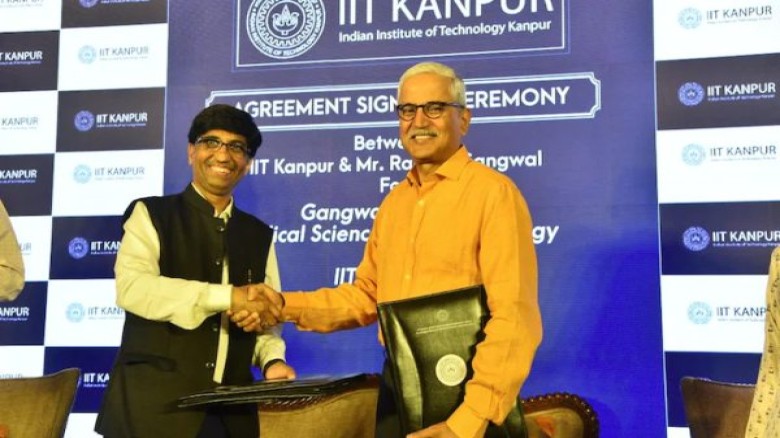Regional

Rakesh Gangwal has given Rs 100 crore in a personal capacity. Abhay Karandikar, Director of IIT Kanpur, announced the major news on Twitter on Monday.
Digital Desk: Rakesh Gangwal, co-founder of IndiGo Airlines and an IIT Kanpur alumnus, has gave one of the largest personal gifts to the School of Medical Sciences & Technology at IIT Kanpur.
Rakesh Gangwal has given Rs 100 crore in a personal capacity. Abhay Karandikar, Director of IIT Kanpur, announced the major news on Twitter on Monday.
Gangwal will also join the school's Advisory Board.
"'It is a privilege to be associated with such a noble endeavour with my alma mater. I am proud to see that the institution that has produced thousands of leaders across various sectors is now paving the way in the healthcare sector," Gangwal said, as reported by PTI.
"More than ever, healthcare is intertwined with technological advances and this school will accelerate innovation in healthcare,'' he added
The director of IIT tweeted, "Here is big news from @IITKanpur. In an extraordinary gesture, our alumnus Mr Rakesh Gangwal, Co-Founder of IndiGo airlines has made one of the largest personal donations with a 100 crore contribution focused on supporting the School of Medical Sciences & Technology at IIT Kanpur,"
"This is the first of its kind. It is setting up a super speciality hospital," IIT Kanpur Director added.
Also Read: A rain-triggered landslide in Meghalaya has killed at least two people
IIT Kanpur has a long history of successfully exploring novel techniques, technologies, and initiatives that have a societal impact.
According to sources, the School of Medical Sciences and Technology at IIT Kanpur is "the first of its type." Furthermore, the head of IIT Kanpur asserts that no other IIT branch in India has such a structure.
The school will be built in two stages. The first phase of the project will comprise the construction of a 500-bed super-speciality hospital, an academic block, a residential/hostel building, and a service block with a total built-up area of about 8,10,000 square feet.
Phase I will also feature the establishment of Centers of Excellence (CoE) to conduct R&D in futuristic medicine. According to PTI, this phase is expected to be finished within the next 3-5 years.
Leave A Comment